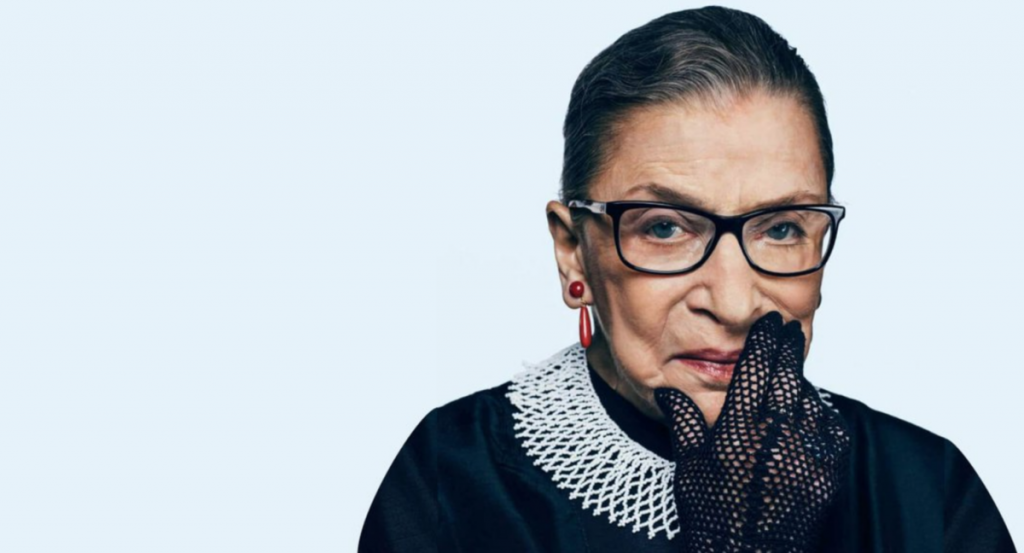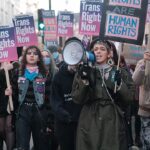Blog Post
What did Ruth Bader Ginsburg mean when she referred to “populations that we don’t want to have too many of”?
By Jonathon Van Maren
In 2009, the liberal lioness of the Supreme Court, Justice Ruth Bader Ginsburg, sat down with Emily Bazelon of the New York Times Magazine for a freewheeling conversation on a range of issues, including the landmark abortion case Roe v. Wade. During the course of that discussion, the notorious RBG noted that some aspects of the Roe decision had been unexpected:
The ruling surprised me. Frankly I had thought that at the time Roe was decided, there was concern about population growth and particularly growth in populations that we don’t want to have too many of. So that Roe was going to be then set up for Medicaid funding for abortion.
Obviously, this comment raised some questions. Which populations were the ones “we don’t want to have too many of”? Why, specifically, do we not want certain populations to grow? At the time, Bazelon moved right along with the interview, leaving Ginsburg’s statement to speak for itself. Many interpreted her comment as a reference to the eugenicist roots of the abortion industry—Planned Parenthood, after all, was founded by the notorious racist Margaret Sanger, who dearly hoped that “populations we don’t want to have too many of” could be drastically reduced.
Bazelon was appalled that Ginsburg’s comment was perceived by some as a nod to the abortion movement’s eugenicist past or perhaps a trace of current eugenicist sentiment. “To imagine that Justice Ginsburg would endorse eugenics as a motivation for supporting legal abortion, you have to be out to get her,” she wrote. “I say that because this notion is so entirely at odds with her life’s work advocating for equal rights for women, especially poor women. That’s why it didn’t occur to me at the time.”
The argument that RBG’s feminism somehow eliminates the possibility that she could also support legal abortion for eugenic reasons is a pretty flimsy one—after all, the champions of eugenics were nearly all liberals with impeccably progressive credentials, and would have described themselves as such. This includes several prominent feminist figures as well, for that matter. In a later interview, Bazelon asked Ginsburg to clarify her comments, and RBG responded by stating that the Court had accepted the feminist argument as well as the appeal to privacy in Roe, while rejecting then-popular arguments concerning population control.
“Emily, you know that that line, which you quoted accurately, was vastly misinterpreted,” Ginsburg told Bazelon. “I was surprised that the court went as far as it did in Roe v. Wade, and I did think that with the Medicaid reimbursement cases down the road that perhaps the court was thinking it did want more women to have access to reproductive choice. At the time, there was a concern about too many people inhabiting our planet. There was an organization called Zero Population Growth.” She continued, “In the press, there were articles about the danger of crowding our planet. So there was at the time of Roe v. Wade considerable concern about overpopulation.”
There you have it, Bazelon writes: RBG was obviously referring to the overpopulation alarmists in her comments, but now clarified that those were simply contemporary concerns rather than any motivation behind the legalizing of abortion. But in reality, that statement only clarifies the first part of Ginsburg’s statement. She noted that there “was concern about population growth and particularly growth in populations we don’t want to have too many of [emphasis mine].” So again: Which populations do we not want to have “too many of”? And who is “we,” for that matter? Ginsburg’s follow-up answer merely clears up the statement about those concerned about population growth—but offers no explanation as to what she meant by the growth of specific, apparently unwanted populations.
Regardless of what was intended by the Court in the Roe decision and which factors influenced the seven male justices who brought legal abortion to all fifty states, what can be stated for certain is that abortion has devastated the very communities that the eugenicists wished to target—which is precisely why the white supremacist alt-right is pro-abortion. Consider these sobering statistics, from a column in the Wall Street Journal earlier this week titled “Let’s Talk About the Black Abortion Rate”:
In New York City, thousands more black babies are aborted than born alive each year, and the abortion rate among black mothers is more than three times higher than it is for white mothers. According to a city Health Department report released in May, between 2012 and 2016 black mothers terminated 136,426 pregnancies and gave birth to 118,127 babies. By contrast, births far surpassed abortions among whites, Asians and Hispanics.
Nationally, black women terminate pregnancies at far higher rates than other women as well. In 2014, 36% of all abortions were performed on black women, who are just 13% of the female population. The little discussed flip side of “reproductive freedom” is that abortion deaths far exceed those via cancer, violent crime, heart disease, AIDS and accidents. Racism, poverty and lack of access to health care are the typical explanations for these disparities. But black women have much higher abortion rates even after you control for income. Moreover, other low-income ethnic minorities who experience discrimination, such as Hispanics, abort at rates much closer to white women than black women.
One would think that we could collectively agree that these awful statistics constitute a genuine tragedy, but progressives cannot do that. They have decided to move away from the Clintonian defence of abortion, “safe, legal, and rare,” to celebrating abortion as a fundamental human right—and the right that empowers women. To suggest that there might be something problematic about the black abortion rate is to suggest that there might be something tragic about abortion itself, and that violates the party line. Abortion is something that progressives must celebrate, even if it results in dumpsters overflowing with dead black babies.
And they wonder why pro-lifers are suspicious when a radically pro-abortion Supreme Court justice refers vaguely to concern about “growth in populations we don’t want to have too many of.”
______________________________________
For anyone interested, my book on The Culture War, which analyzes the journey our culture has taken from the way it was to the way it is and examines the Sexual Revolution, hook-up culture, the rise of the porn plague, abortion, commodity culture, euthanasia, and the gay rights movement, is available for sale here.









Perhaps Notorious RBG was referring to the criminals that we “don’t want too many of.” Especially in light of the extensively researched paper by John J. Donohue III and Steven D. Levitt published in The Quarterly Journal of Economics, May 2001.
Their conclusion is that, “The evidence we present is consistent with legalized abortion reducing crime rates with a twenty-year lag. Our results suggest that an increase of 100 abortions per 1000 live births reduces a cohort’s crime by roughly 10 percent.”
What she said was said in plain english.. no intepretation, spin or backtracking required.. Eugenics is alive and well on the left.